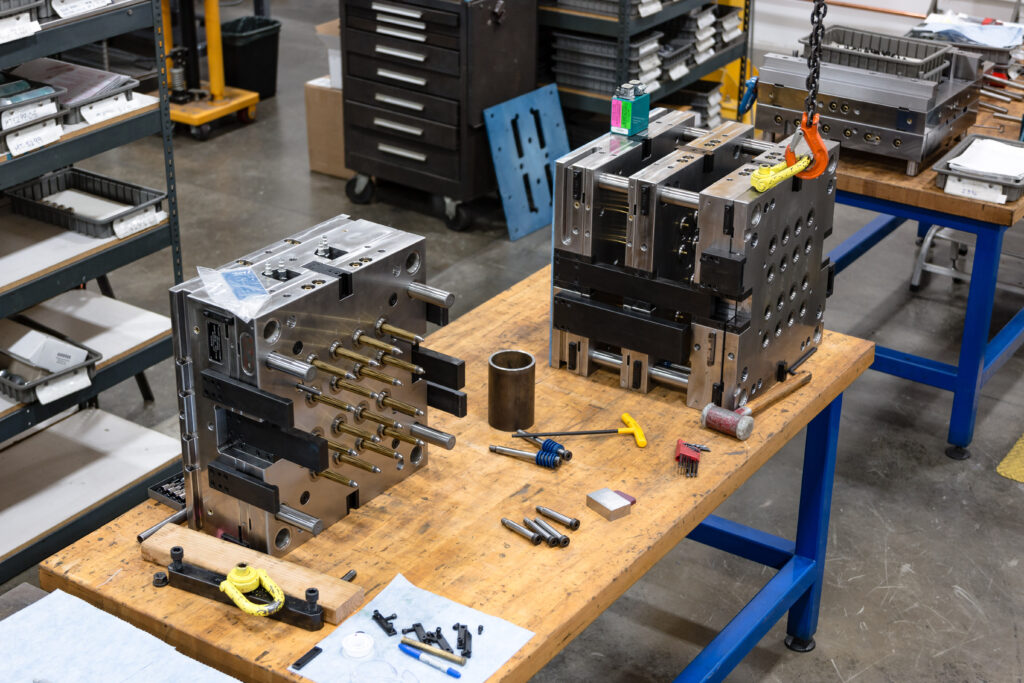Precision injection molding is a manufacturing process widely recognized for its ability to produce high-quality, detailed, and complex plastic parts with exceptional accuracy. This sophisticated technique is crucial in industries where precision is paramount, such as in medical devices, automotive components, and electronics. But what exactly makes precision injection molding stand out in the vast world of manufacturing, and why is it the go-to method for many companies seeking unparalleled quality and efficiency? Let’s delve deeper.
The Concept of Precision Injection Molding
At its core, precision injection molding is about achieving the highest level of detail and accuracy in manufactured parts. It involves injecting molten plastic material into a mold at high pressure, which then cools and solidifies into the final part. What sets precision molding apart is its ability to meet stringent specifications with minimal variance between parts, making it ideal for applications that require tight tolerances and intricate designs.
Key Components of Precision Injection Molding
1. Advanced Mold Design and Fabricaion
The mold is the hear of the injection molding process. In precision molding, molds are designed and manufactured with exceptional accuracy, often using high-grade materials and state-of-the-art CNC machining. This ensures that the mold cavities reflect the exact dimensions and geometries of the desired part, allowing for the production of components with tight tolerances.
2. Material Selection
Material selection is critical in precision injection molding. The chosen material must not only meet the functional requirements of the part, such as durability or flexibility but also suit the specific conditions of the molding process. High-performance plastics with consistent properties ensure that each part maintains the same quality and dimensions, batch after batch.
3. Process Control and Optimization
Precision molding relies heavily on advanced process control technologies to maintain optimal conditions throughout the manufacturing cycle. Parameters such as temperature, pressure, and injection speed are meticulously monitored and adjusted in real-time to ensure the highest quality outcomes. This level of control minimizes the risk of defects and variability in the final products.
Advantages of Precision Injection Molding
– High-Quality Parts: Precision molding produces parts with superior surface finishes, dimensional accuracy, and mechanical properties.
– Efficiency and Scalability: Once the initial setup is complete, the process allows for the rapid production of large quantities of parts, making it both time and cost-efficient at scale.
– Versatility: It can accommodate a wide range of materials and complex part designs, making it suitable for various applications across industries.
– Reduced Waste: Precision molding is designed to use materials efficiently, resulting in minimal waste and a more sustainable manufacturing process.
Applications of Precision Injection Molding
The applications for precision injection molding are vast and varied, including but not limited to;
– Medical Devices: Components for surgical instruments, diagnostic equipment, and other medical devices where precision is critical for performance and safety.
– Automotive Parts: Precision parts such as connectors, sensors, and other critical components that must meet strict industry standards.
– Consumer Electronics: Enclosures, buttons, and other components of consumer electronics that require high aesthetic quality and functional precision.
Conclusion
Precision injection molding represents the pinnacle of manufacturing excellence, offering unparalleled accuracy, efficiency, and versatility. It’s the process behind the high-quality parts we rely on every day, from the car we drive to the smartphone in our pocket. By understanding the intricacies and advantages of precision injection molding, companies can better appreciate the value it brings to their products and the competitive edge it offers in the market.
As we continue to push the boundaries of what’s possible in manufacturing, precision injection molding will undoubtedly play a pivotal role in shaping the future of industries worldwide.


